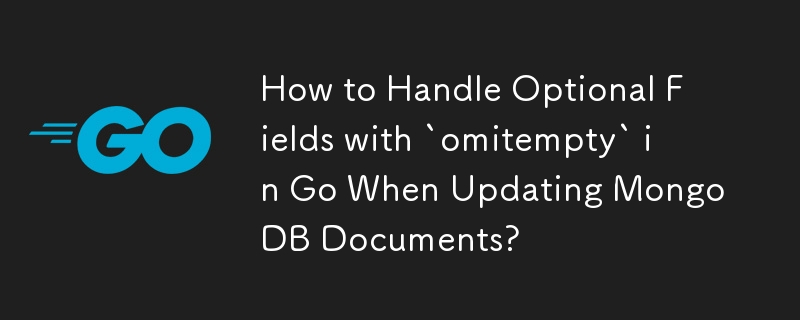

When dealing with forms that contain optional fields, it's common to represent those fields as empty strings, false boolean values, or zero-valued integers in JSON. However, when using the omitempty flag in Golang structures, these values are explicitly ignored during mapping, which can lead to issues when updating documents in MongoDB.
Consider a Coupon structure in Golang with fields marked as omitempty:
type Coupon struct {
Id int `json:"id,omitempty" bson:"_id,omitempty"`
Name string `json:"name,omitempty" bson:"name,omitempty"`
Status bool `json:"status" bson:"status"`
}During the initial save, all non-empty fields are successfully stored in MongoDB. However, upon subsequent updates, if any optional field has been modified to an empty value (e.g., an unchecked checkbox), the omitempty flag prevents the empty value from being mapped into the structure. As a result, the update operation fails to modify the existing field's value.
The issue arises because bool and int types have only two possible values (false and true, 0 and non-zero, respectively). To accommodate the need to represent three states (not update, set to false, or set to true) for bool fields and similar cases for int fields, the structure fields should be modified to use pointers.
type Coupon struct {
Id *int `json:"id,omitempty" bson:"_id,omitempty"`
Name string `json:"name,omitempty" bson:"name,omitempty"`
Status *bool `json:"status" bson:"status"`
}With pointers, a nil value represents an omitted field. For non-nil pointers, the pointed value represents the field's value. Thus, the following scenarios can be handled:
By utilizing pointers and the omitempty flag, you can effectively handle optional fields in Golang structures while ensuring that updates are performed correctly without overriding existing values in MongoDB.
The above is the detailed content of How to Handle Optional Fields with `omitempty` in Go When Updating MongoDB Documents?. For more information, please follow other related articles on the PHP Chinese website!




